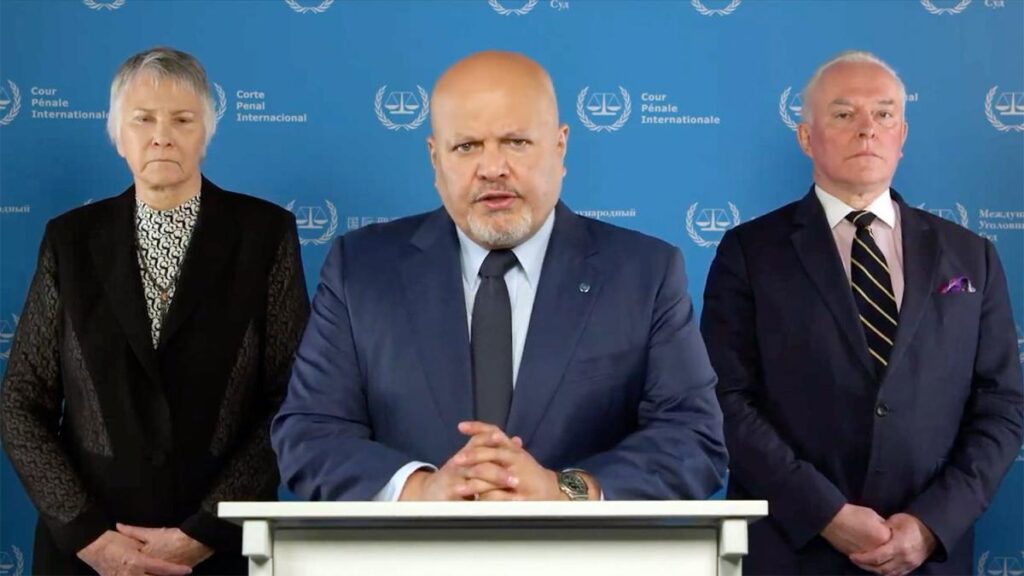Fazal Masood Malik and Farhan Khokhar, Canada

By issuing arrest warrants for Benjamin Netanyahu, Yoav Gallant and Hamas leaders, the International Criminal Court (ICC) has launched itself into uncharted territory, and possibly a defining moment for itself.
The warrants mark the first time it has pursued the leader of a Western democracy, raising profound questions about international justice and its real-world application. (“What the ICC arrest warrants mean for Israel and Hamas”, www.bbc.com, 21 May 2024)
This isn’t just another ICC indictment. The charges cut to the heart of one of the world’s most intractable conflicts. On the on hand, Netanyahu stands accused of using starvation as a weapon of war and directing attacks against civilians in Gaza, and on the other Hamas’s leadership faces allegations of murder, torture, and hostage-taking. (“Why did ICC issue Netanyahu arrest warrant and what are the implications?”, www.theguardian.com, 21 November 2024)
The ICC has long fought accusations that it only goes after easy targets – mostly African leaders and defeated parties in conflict zones. These new warrants, following the indictment of Vladimir Putin, suggest a court finally willing to bare its teeth. As Le Monde puts it, we’re witnessing a “turning point” in international justice. (“ICC arrest warrant for Netanyahu is a turning point for international justice”, www.lemonde.fr, 22 November 2024)
This crisis emphasises a moral imperative reflected in Islamic teachings: “whosoever killed a person — unless it be for [killing] a person or for creating disorder in the land — it shall be as if he had killed all mankind […]” (Surah al-Mai‘dah, Ch.5: V.33)
Both sides stand accused of violating this sacred principle, further highlighting the necessity of impartial accountability. The example of the Holy Prophet Muhammadsa in establishing the Constitution of Medina – which guaranteed equal rights and equal justice for all communities – shows how true justice must transcend tribal or political allegiances.
While these principles establish clear moral guidelines, their application in current conflicts raises complex questions about justice and accountability. This complexity is particularly evident in cases where accused parties are no longer alive to face trial, as some of the Hamas leaders named in the warrants are reported to have been killed. If true, this raises thorny questions about the ICC’s mandate and timing. (“Why did ICC issue Netanyahu arrest warrant and what are the implications?”, www.theguardian.com, 21 November 2024). How can justice be served when the accused are no longer alive? Having been killed by the State of Israel, would their death be considered an obstruction of justice? The court seems to think the symbolic weight of these warrants matters regardless.
Islamic teachings warn against bias in justice. The Holy Quran states:
“O ye who believe! be steadfast in the cause of Allah, bearing witness in equity; and let not a people’s enmity incite you to act otherwise than with justice. Be [always] just, that is nearer to righteousness. And fear Allah. Surely, Allah is aware of what you do. (Surah al-Ma‘idah, Ch.5: V.9)
This principle resonates with the ICC’s stated aim to apply the law impartially. However, achieving this goal in practice requires overcoming both structural and political barriers.
The reality on the ground is messier. Neither Israel nor America recognises the ICC’s jurisdiction. Netanyahu has dismissed the warrants as “anti-Semitic” and “outrageous” (“Why did ICC issue Netanyahu arrest warrant and what are the implications?”, www.theguardian.com, 21 November 2024) His reaction highlights a fundamental problem: how do you enforce international law when powerful nations simply refuse to play ball?
Meanwhile, Gaza’s humanitarian crisis – the backdrop to all this legal manoeuvring – grows worse. Over 2 million people face displacement, hunger, and severely limited access to desperately needed basic life necessities. The ICC claims Israeli leadership deliberately restricted essential resources. Israeli officials point the finger at Hamas, accusing them of misusing aid and worsening civilian suffering. (“Why did ICC issue Netanyahu arrest warrant and what are the implications?”, www.theguardian.com, 21 November 2024)
We’ve seen this enforcement challenge before. Sudan’s Omar al-Bashir travelled freely for years despite an ICC warrant. Putin still moves within friendly territories, unbothered by his indictment. For Netanyahu, the immediate impact might just be some awkward travel planning, particularly regarding visits to European countries that support the ICC.
As for the countries professing their stated belief to be Islam, the teachings of the Holy Prophet Muhammadsa fall on deaf ears. The Prophetsa once said, “Help your brother whether he is an oppressor or is oppressed.” When his companions asked how to help an oppressor, he replied, “By preventing him from oppressing others.”
This wisdom speaks directly to the ICC’s mandate: true justice requires holding accountable even those we might consider allies. Justice must not only be pursued but also seen to be achieved. The court is clearly trying to evolve beyond its reputation as a tiger that only roars at the weak and wounded.
These warrants – targeting both sides of one of the world’s most watched conflicts – represent its boldest move to date, but until the ICC finds a way to bridge the gap between its legal authority and its practical power, it risks following the path of other well-intentioned but ultimately ineffective international bodies.
What happens next will tell us a lot about the future of international justice. Can the ICC transform these warrants into actual accountability? Although independent in decision-making, the ICC’s ability to deliver justice remains constrained by the existing international power structure.
As recent conflicts have shown, permanent members of the UN Security Council can shield themselves and their allies through veto power – as voiced by Hazrat Mirza Masroor Ahmadaa on countless occasions – undermining the principle of equal justice.
Until this fundamental imbalance is addressed, the ICC’s noble aspirations may continue to face practical limitations in execution.

